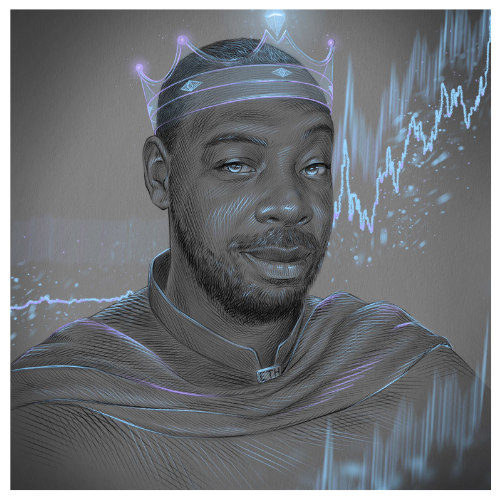Ai Art ‘Will Wipe Us Out’
Attack Of AI Drones
Greetings Warriors
Today, let’s talk about a topic that’s causing quite a stir in the creative world. It’s about copyright, AI, and how tech companies might soon gain the ability to use creative works—without asking. This issue isn’t just theoretical; it’s something that’s sparking outrage among artists, musicians, writers, and creators. And standing right at the front of the battle is none other than Sir Paul McCartney. Yes, that Paul McCartney—the legendary Beatle.
Let’s dive into what’s happening, why it matters, and how this fight for creative rights is shaping up.
The Proposal That’s Shaking Up the Industry
Imagine pouring your heart and soul into a song, a painting, or a novel, only to find out that an AI company has used your work to train their software—without your permission. Sounds infuriating, right? Well, that’s exactly what a proposed change to UK copyright laws could allow.
The government is considering a plan to let AI companies use copyrighted materials for training their algorithms unless the rights holder specifically “opts out.” Supporters of the proposal argue that it will boost the UK’s growing tech sector, but artists and creators are calling it out for what it really is: theft.
Sir Paul McCartney, along with other big names like Kate Bush and Stephen Fry, is backing efforts in the House of Lords to block this move. Paul put it simply: “AI could just take over—and we don’t want that to happen, particularly for the young composers and writers who may depend on their work to build a career. If AI wipes that out, that would be a very sad thing indeed.”
AI Attack
The Creative Industry vs. AI
Let’s break this down. The creative industries contribute a staggering £126 billion a year to the UK economy. These are the artists, musicians, writers, filmmakers, and publishers whose works inspire, entertain, and innovate. Now, they’re being asked to fight an uphill battle against massive AI companies that want to use their creations as raw material.
Here’s the kicker: opting out isn’t as simple as it sounds. Authors like Kate Mosse have pointed out that creators don’t have the time or resources to monitor and opt out of every potential misuse of their work. She said it best: “This solution would be a barrier to new creation in many ways. It will kill originality.”
The programs in question—like ChatGPT and Midjourney—rely on enormous datasets of text, images, and videos to learn and improve. These datasets often include copyrighted works scraped from the internet without permission. Since the rise of AI, creators have been suing companies, striking licensing deals, or opting out wherever possible. But the proposed law could make this battle even harder.
The Pushback: Voices From the Front Lines
The pushback against the proposal is loud and clear. Let’s hear from some of the voices leading this fight:
Baroness Beeban Kidron, a filmmaker and peer in the House of Lords, isn’t mincing words. She described the government’s approach as treating the AI and creative sectors like “warring children,” while ignoring the reality of widespread theft. She’s proposing amendments to force AI companies to license content by default, which would protect creators and enforce the rule of law.
Ed Newton-Rex, a composer and former tech insider, highlighted the imbalance in the proposal. “This will hand most of the UK’s creative work to AI companies for free, letting them build competitors to millions of creators,” he warned.
Owen Meredith, CEO of the News Media Association, called the opt-out system “unworkable.” He argued that the UK already has strong copyright laws but lacks enforcement and transparency.
Dan Conway, head of the Publishers Association, described the government’s plan as “a best effort at compromise” but admitted that the measures are untested and could cause more confusion than clarity.
BUY MY ART🖤
The Government’s Position
On the other side of the debate, ministers see an opportunity to foster collaboration between tech and creative industries. They believe the new law could lead to more licensing deals and create new revenue streams for artists.
Sir Chris Bryant, the data minister, framed the issue as a potential “win-win” if done right. He acknowledged the challenges of opting out and called for a system that protects creators while allowing AI development to thrive.
But let’s be real: finding a middle ground that satisfies both sides is easier said than done.
What’s at Stake?
This isn’t just about money or copyright law. It’s about the future of creativity itself.
AI has the potential to revolutionize industries, but it also raises tough questions. If AI can generate music, art, and literature, what does that mean for the humans who create those things? Can originality survive in a world where machines can mimic and mass-produce creativity?
Sir Paul McCartney, Kate Bush, and countless others are sounding the alarm because they see the danger in letting AI companies operate unchecked. If the government’s plan goes through, it could set a precedent for other countries, creating a world where creative works are up for grabs.
Why This Fight Matters to All of Us
Even if you’re not a songwriter or a painter, this fight matters. It’s about protecting the people who create the stories, images, and sounds that make life richer. It’s about ensuring that technology enhances human creativity, not replaces it.
The government may argue that they’re trying to balance the scales, but creators like Paul McCartney are right to push back. This isn’t just a legal issue—it’s a moral one.
Final Thoughts
So, what do you think? Should tech companies have the right to use copyrighted works without asking? Or should creators always have the final say over how their work is used? Let me know in the comments, and don’t forget to share this with anyone who’s passionate about creativity and innovation. Together, we can make sure the future is one where art and technology thrive side by side. 😊










